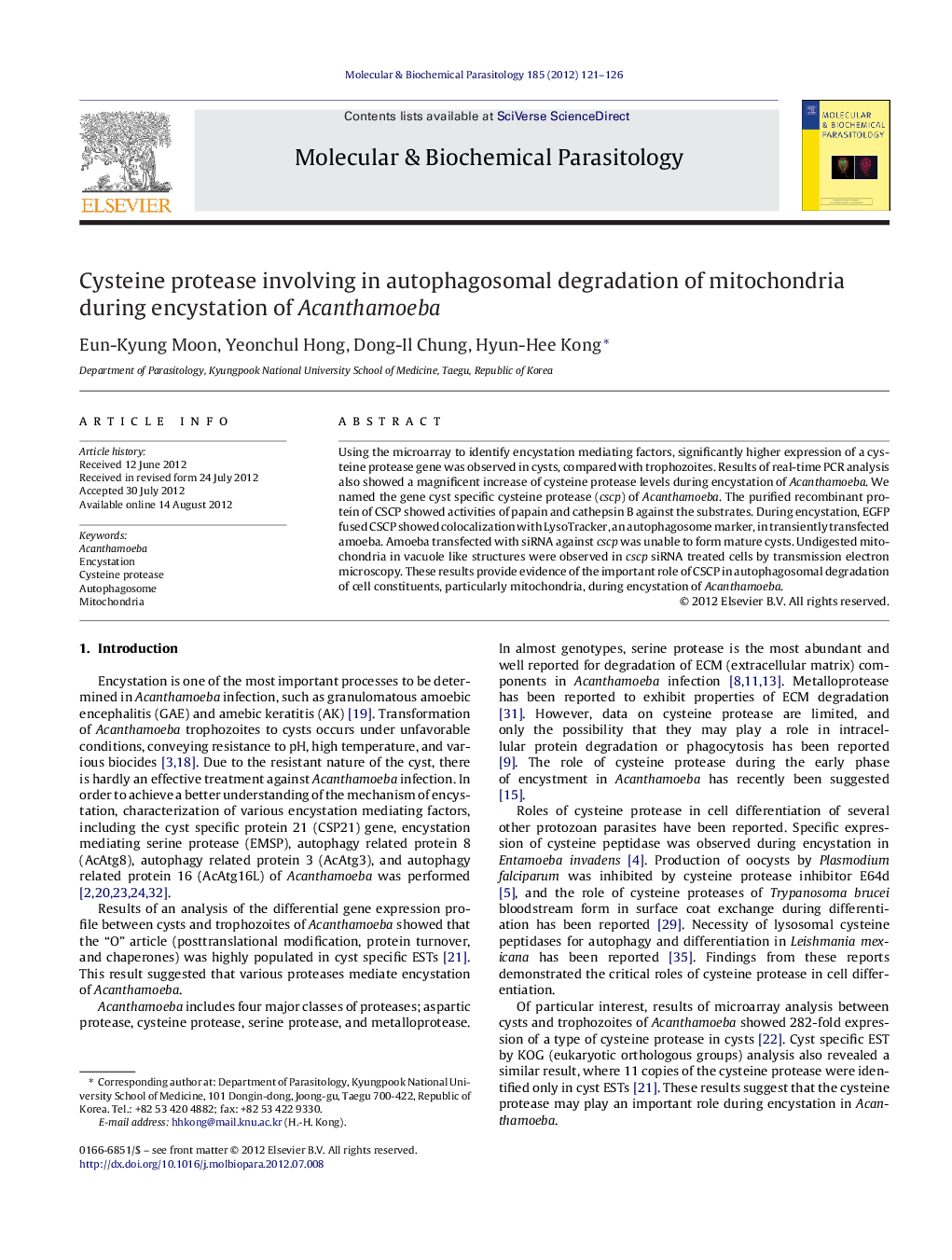| Article ID | Journal | Published Year | Pages | File Type |
|---|---|---|---|---|
| 5915611 | Molecular and Biochemical Parasitology | 2012 | 6 Pages |
Using the microarray to identify encystation mediating factors, significantly higher expression of a cysteine protease gene was observed in cysts, compared with trophozoites. Results of real-time PCR analysis also showed a magnificent increase of cysteine protease levels during encystation of Acanthamoeba. We named the gene cyst specific cysteine protease (cscp) of Acanthamoeba. The purified recombinant protein of CSCP showed activities of papain and cathepsin B against the substrates. During encystation, EGFP fused CSCP showed colocalization with LysoTracker, an autophagosome marker, in transiently transfected amoeba. Amoeba transfected with siRNA against cscp was unable to form mature cysts. Undigested mitochondria in vacuole like structures were observed in cscp siRNA treated cells by transmission electron microscopy. These results provide evidence of the important role of CSCP in autophagosomal degradation of cell constituents, particularly mitochondria, during encystation of Acanthamoeba.
Graphical abstractDownload high-res image (198KB)Download full-size imageHighlights⺠Cyst specific cysteine protease (cscp) expressed high during encystation of Acanthamoeba. ⺠CSCP localized in autophagosome like structure. ⺠Acanthamoeba transfected with siRNA against cscp was unable to form mature cysts. ⺠Undigested mitochondria in autophagy were observed in cscp siRNA treated cells by TEM.
